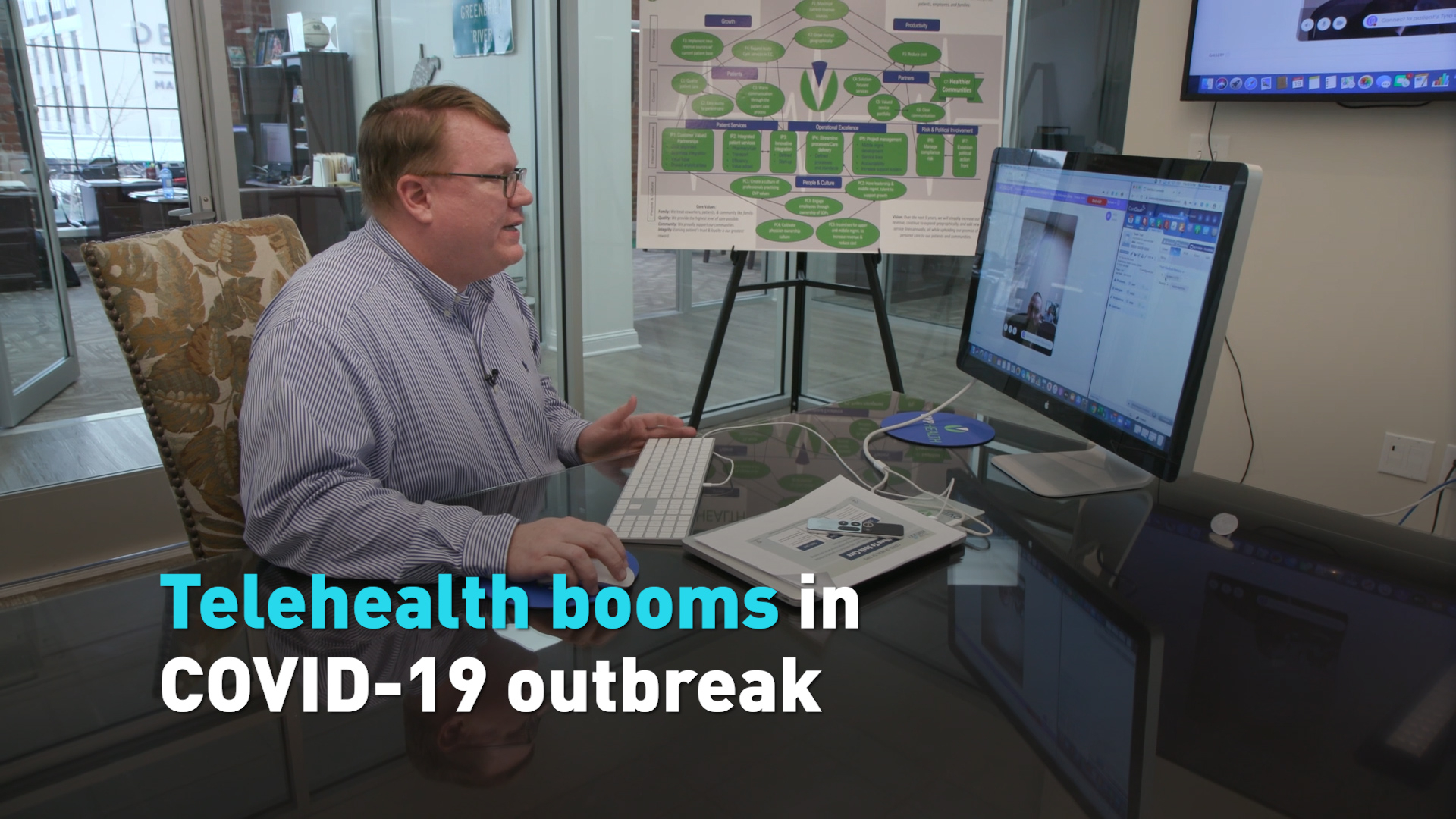00:40

As COVID-19 cases surge in the U.S. and hospitals fill with patients, Telehealth is booming.
With an iPad or computer and from a remote location, medical professionals are able to offer patients advice and guidance on what to do next.
"What telehealth can do is help both the clinicians as well as the consumer have access to service without actually getting exposed to the virus. It mitigates the risk. So in that regard it’s incredibly valuable,” Ann Mond Johnson, CEO of the American Telemedicine Association (ATA) tells ABC News.
Telemedicine is letting doctors and nurses use less protective gear, which is in short supply in the U.S.
In the Appalachia region in the U.S., good health treatment can be hard to come by.
The coronavirus has heightened concerns in a region known for low income and unemployment.
But right now, much of the region has stayed ahead of the curve -- in part, by clinical care that includes telemedicine. One company - OVP Health, based in Huntington, West Virginia - hires physicians to work in rural emergency rooms and hospitals in West Virginia, Ohio, Kentucky, and South Carolina.
If patients feel they have been exposed to the virus, they don't have to go to an ER, or a crowded waiting room.
Health officials will go over a list of concerns face to face, or over the internet, to find the best way to move forward for the patient.